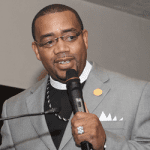A while back, Mike Pence publicly referenced that he abides by the Billy Graham Rule, which is to never eat a meal alone with any woman who is not his wife. I wrote about the fiasco and said this about fundamentalists,
“…what frustrates me most about the BG rule used by grown ups is that living by rules is still the framework that dictates ethical living. I often feel as if evangelical adults do not move past the developmental phase of differentiating.”
Scaffolding is an educational term that can be used to apply to parenting. It basically means providing a structure to help children function as they are developing their capabilities. But the purpose of scaffolding is to be dismantled once the child reaches maturity and no longer needs the prop. I think of rules functioning as scaffolding. When our children are developing cognitive and intuitive skills to make wise discernment choices for their own lives, we can provide some rules to help them—to keep them safe from devastating consequences and give guidance for their own maturity. But the rules should fall away and autonomy extended so our children learn to independently forge their own paths. In this and other ways, I find that fundamentalists never grow up. They never acquire the skills necessary for mature, adult-appropriate behaviors. These immaturities result in dysfunctional relationship patterns which they then pass on to their children, causing harm to themselves, the children, and to the world.

Photo by Ben White on Unsplash
Unfundamentalist Parenting is to break these cycles of underdeveloped areas—grow up and own the ways we’ve been wounded by dysfunctional parenting. It is to seek healing and move forward with wholeness. Here are six ways fundamentalists need to grow up:
1. Dependence on authority. Fundamentalism is predicated on hierarchy, with God as the ultimate authority, and rules enforced by men over women, adults over children, and so on. When your mind is conditioned to require external validation for the way you live your lives, you don’t develop the skills of independent cognitive discernment. This is why fundamentalist adults continue to require rules to know how to live—why Mike Pence needs a rule to know how to live faithfully with his wife. This is immaturity of thought—we should grow our minds into autonomous thinkers so we can weigh in all the complicated factors of our individual circumstances to make decisions for our own lives.
2. Lack of emotional boundaries. Fundamentalists are expected to love one another. However, this behavioral expectation leads to an erosion of emotional boundaries where other people are held responsible for how they make you feel. The religious and moral obligations to love unconditionally and forgive endlessly (70 x 7 anyone?) carelessly neglects protecting emotional boundaries. Fundamentalist adults, then, don’t ever learn to form healthy emotional boundaries, and enter into dysfunctional, codependent relationships who demand unceasingly for others to carry their emotional burden.
3. Naiveté about the world. Fundamentalist families shelter their children from anything they consider bad influences. This can range from truly toxic influences to things that are simply age inappropriate. But it solidifies in a child’s mind that certain things are evil, and even when you grow into an age when you can consume these art/music/movies, etc. you still stay away and remain in a sheltered, alternative universe of a religious subculture. This is damaging on many levels. First, fundamentalist adults don’t ever learn to critique the culture because they don’t practice consuming it. Second, it creates a fragility in which they can’t “handle” the things of the world because it’s too dark or too disturbing, and because of it, they don’t have the resilience to make positive change in the world.
4. Incomplete sexual education. Fundamentalists typically teach purity and abstinence as a sexual ethic. Fundamentalist adults who “did the right thing” and remained chaste until marriage often struggle with their sex lives because the reality is that our sexuality is so much more nuanced and dynamic than purity culture. Even as adults, married fundamentalists don’t know what to do with their sexual attraction to others because they were never taught a category of sexuality outside the black and white boxes of married sex and chasity. This is why porn addiction and people with Ashley Madison accounts come to light even (perhaps particularly) in fundamentalist marriages—the lack of sexual maturity hinders them from living into a normal human impulse in a healthy manner.
5. Anti-intellectualism. Many fundamentalists stop striving for intellectual growth and expanding their learning beyond the basic requirements from school. Women, particularly, are discouraged from pursuing further education or professional learning because their highest vocation are taught to be within the home. This is problematic because when you don’t continue engaging your critical thinking muscle, it atrophies and makes you vulnerable to adopting ignorant streams of information that harms oneself and society. Adults who are intellectually stunted and put in positions of power is dangerous for the world.
6. Lack of healthy conflict resolution. First of all, fundamentalists are uncomfortable with conflict. And pain. And mess. It’s because fundamentalism requires categories, for everything to fit neatly into a tidy worldview. An unwillingness to confront conflict or to face pain results in hasty conflict resolution—a rush to clean things up. Fundamentalist adults never had the chance to practice spending slow, laborious time and energy to wrestle with conflict and how to emerge from it with both parties feeling whole and healed. I can think of zero times this took place in my own fundamentalist upbringing, it was never modeled for me. This social immaturity continues to manifest in fundamentalist adults who have never grown up.
For those of us who know better, let’s do better. Let’s be brave and face the struggle of being human because every time we confront pain, we grow and mature and become resilient. There is no better gift than modeling this for our children and guide them into their own maturity.
Get a free download of a Christian parenting manifesto that helps us guide children into healthy spirituality + a guide on How to Raise a Feminist Son + the most helpful parenting resources with progressive values.
















